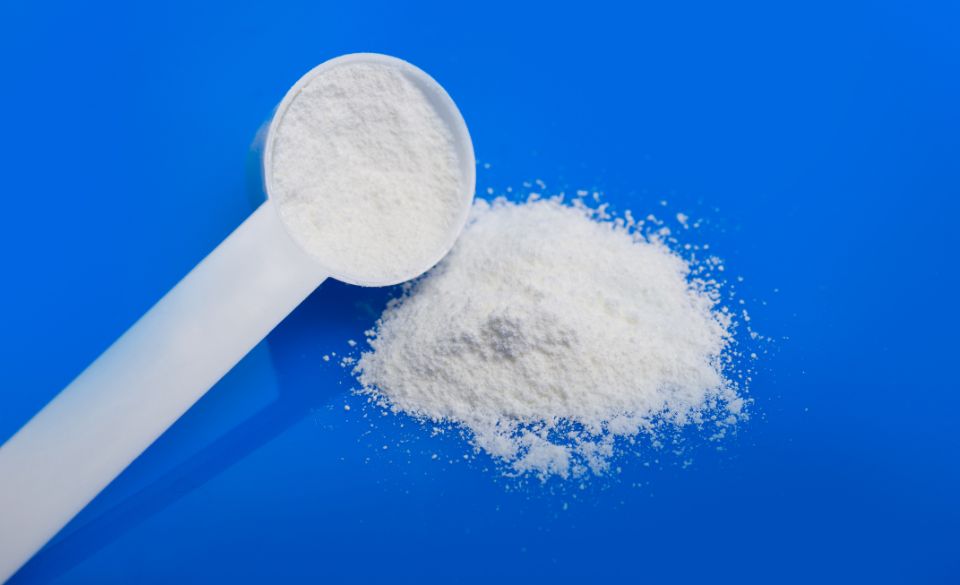
The Ultimate Guide To Creatine & Running
Page Contents
- What is Creatine Supplement?
- Can Runners Take Creatine?
- How Much Creatine Should a Runner Take?
- Should You Take Creatine Before or After Running?
- Does Creatine Improve Endurance?
- What Are the Side Effects of Creatine?
- What Happens When You Stop Taking Creatine?
- What Are the Cons of Taking Creatine?
- Final Words
Welcome to the ultimate guide to creatine and running! If you’re a runner looking to enhance your performance, you’ve probably heard about creatine as a popular supplement in the fitness world. But you might be wondering: Can runners take creatine? In this comprehensive guide, we’ll delve into the topic and provide you with all the information you need to make an informed decision about incorporating creatine into your running routine.
What is Creatine Supplement?
Before we dive into whether runners can take creatine, let’s first understand what this supplement is all about. Creatine is a naturally occurring compound found in small amounts in foods like meat and fish. It plays a crucial role in providing energy to the muscles, particularly during short bursts of high-intensity exercise. Creatine supplementation, in the form of creatine monohydrate, has gained popularity among athletes and fitness enthusiasts for its potential benefits in improving strength, power, and muscle mass.
Can Runners Take Creatine?
Now, let’s address the burning question: Can runners benefit from taking creatine? The short answer is yes! While creatine is often associated with weightlifting and strength training, it can also be advantageous for runners. Research suggests that creatine supplementation may enhance running performance, especially during high-intensity efforts, such as sprints and interval training.
Several studies have shown that creatine supplementation can increase muscle phosphocreatine levels, leading to improved energy availability and anaerobic performance. Additionally, creatine may aid in faster recovery between intense running sessions, allowing you to train more consistently and potentially improve your overall performance.
How Much Creatine Should a Runner Take?
Determining the appropriate dosage of creatine for runners is essential to maximize its benefits while minimizing potential side effects. The standard practice is to begin with a loading phase, where you take a higher dosage for the first few days to saturate your muscles with creatine, followed by a maintenance phase with a lower dosage.
During the loading phase, it’s recommended to take around 20 grams of creatine per day, divided into 4-5 equal doses. This loading phase typically lasts for 5-7 days. Afterward, during the maintenance phase, you can reduce the dosage to around 3-5 grams per day. It’s important to note that individual responses to creatine may vary, so it’s always wise to consult with a healthcare professional or a sports nutritionist to determine the right dosage for your specific needs.
Should You Take Creatine Before or After Running?
Timing plays a crucial role when it comes to taking creatine as a runner. To optimize its effectiveness, it’s generally recommended to take creatine before your workout. By consuming creatine prior to running, you ensure that the compound is readily available to your muscles during your training session. This can be particularly beneficial for high-intensity efforts or sprint training.
However, if you find it more convenient or prefer to take creatine after your run, it can still provide benefits. While immediate pre-workout consumption is ideal, creatine supplementation is not limited to a specific timeframe. The most important aspect is to be consistent with your intake, whether it’s before, after, or even during your training session, as long as you’re following the recommended dosage guidelines.
Does Creatine Improve Endurance?
While creatine is well-known for its ability to enhance short-duration, high-intensity performance, its impact on endurance running has been a subject of debate. Some studies suggest that creatine supplementation may lead to small improvements in endurance performance, such as time to exhaustion and running economy. However, the evidence in this area is not as robust as it is for high-intensity efforts.
If your primary goal as a runner is to improve endurance, it’s important to remember that creatine supplementation should be just one component of a well-rounded training and nutrition program. Prioritizing long runs, incorporating proper recovery strategies, and maintaining a balanced diet are crucial factors for endurance improvement. Creatine can complement these efforts by enhancing your overall training capacity, but it should not be considered a magic bullet for endurance enhancement.
What Are the Side Effects of Creatine?
Like any supplement, creatine may come with potential side effects, although they are generally mild and uncommon. Some individuals may experience gastrointestinal discomfort, such as bloating or diarrhea, when taking higher doses of creatine. Staying adequately hydrated can help minimize these issues. Additionally, creatine supplementation may cause slight water retention, leading to a small increase in body weight. However, this weight gain is not due to an increase in body fat but rather an increase in water content within the muscles.
It’s important to note that creatine is a well-studied supplement, and the majority of individuals who take it experience no adverse effects. If you have any concerns or pre-existing medical conditions, it’s always advisable to consult with a healthcare professional before starting any new supplementation regimen.
What Happens When You Stop Taking Creatine?
If you decide to discontinue creatine supplementation, you may wonder what happens next. The good news is that there are no negative long-term consequences associated with ceasing creatine intake. Your body will gradually return to its natural creatine levels, similar to when you weren’t taking the supplement. However, it’s worth noting that any performance benefits or strength gains attributed to creatine may slowly diminish over time.
To maintain the gains achieved through creatine supplementation, it’s crucial to continue following a well-designed training program and proper nutrition. Remember, creatine is just one piece of the puzzle, and consistent effort in all areas of your running routine will yield the best results.
What Are the Cons of Taking Creatine?
While creatine can be beneficial for many runners, it’s important to consider potential drawbacks or cons. One of the primary concerns is the cost associated with long-term creatine supplementation. Depending on the brand and quality, creatine supplements can vary in price. It’s essential to evaluate your budget and determine if it aligns with the ongoing costs of creatine supplementation.
Another consideration is individual response and tolerance. While most people tolerate creatine well, some individuals may experience gastrointestinal issues or other side effects. It’s important to monitor your body’s response and discontinue use if you experience any adverse effects.
Finally, as with any supplement, it’s crucial to prioritize a balanced diet and proper nutrition. While creatine can provide benefits, it should not replace a healthy and varied diet that provides all the necessary nutrients for optimal performance and overall well-being.
Final Words
Creatine supplementation can be a valuable addition to a runner’s training regimen, providing potential benefits in terms of power, strength, and recovery. While creatine is often associated with weightlifting and high-intensity exercise, runners can also reap the rewards of this popular supplement. By following the recommended dosage guidelines, being consistent with your intake, and considering timing, you can optimize the potential benefits of creatine while minimizing any potential side effects.
Remember, creatine is just one tool in your arsenal as a runner. It’s essential to focus on a well-rounded approach that includes proper training, nutrition, rest, and recovery. If you have any concerns or questions about creatine supplementation, it’s always wise to consult with a healthcare professional or a sports nutritionist who can provide personalized guidance based on your specific needs and goals. With the right approach and dedication, creatine can be a valuable ally in your journey to become a stronger, faster, and more resilient runner.



